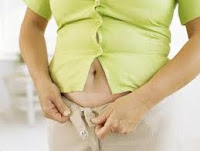3.2g of Beta Alanine Reduce Rate of Perceived Exertion, Increase Time to Exhaustion and Ventilatory Threshold. Vegetarians, Older People and Diabetics May Benefit Most.
 |
| Image 1: If you are into running, ladies, beta alanine is for you ;-) |
Somehow ergogenic, yet not really antioxidant
For the study that was conducted at the Applied Physiology Laboratory at the University of North Carolina, study that was conducted by A.E. Smith recruited 24 "recreationally active" women, of which the authors state that they "engag[ed] in 3–7 days per week of aerobic, resistance or recreational activities, but were not highly trained competitive athletes". With a mean age of 21.8 years, a height of 165cm and a body weight of 61.5kg the subjects are thusly representative of the average young woman who goes to the gym to either get or keep in shape. I am specifically emphasizing this, because - at least in the early days - beta alanine was heavily marketed as "the creatine for women" who fear the water retention people still claim was an inevitable side effect of creatine supplementation.
creatine concentration and enhanced resistance to fatigue during repeated bouts of high-intensity contractions (Rawson. 2011).
The women were advised to simply stick to their usual routine and to refrain from taking any supplements and medications except from their 2x800mg beta alanine tablets. The latter were to be taken 3x a day... so according to Cocker, they should have consumed 2x0.8g x3/day = 4.8g/day and not, as the scientists state "3.2 g daily". Now, according to Smith et al. this was the "required dosage" all participants met. I can however not say, whether this means that the third dose was optional... and this is not the only oddity in this study, where it is well worth to look beyond the assessments and conclusions of the authors. At the beginning and the end of the 28-day supplementation period, the women had to perform a graded oxygen consumption test (VO2max) to evaluate VO2max, time to exhaustion, ventilatory threshold and establish peak velocity (PV), as well as a "non-damaging treadmill run (oxidative stress run) for 40 min at 70% PV [peak velocity]". Before, immediately after and in the 2-6h post running window total antioxidant capacity (TAC), superoxide dismutase (SOD), 8-isoprostane (8ISO) and reduced glutathione (GSH) were measured. In addition to that, heart rate and ratings of perceived exertion were recorded during the 40 min run. The two main metrics of the study were thusly the potential anti-oxidant effects (TAC, SOD, 8ISO, GSH) and the anticipated immediate ergogenic effects (VO2Max, time to exhaustion, heart rate and perceived exertion) of beta alanine supplementation.
 |
| Figure 1: Effect of 28 days of beta alanine supplementation on maximal oxygen consumption (VO2max), time to exhaustion during a graded exercise test (VO2TTE) and ventilatory threshold (VT) and qualitative practical significance (data and caption adapted from Smith. 2011) |
 |
| Figure 2: Effect of beta alanine supplementation on oxidative stress markers measured as total antioxidant capacity (TAC) and glutathione (GSH) and the qualitative practical significance for women (data and caption adapted from Smith. 2011) |
 |
| Figure 3: Absolute GSH levels (in µM) immediately before (pre), post, 2h and 4h after treadmill running in the placebo and beta alanine supplemented women before (pre) and after (post) the 28-day supplementation period (compiled based on data from Smith. 2011) |
All-clear: Beta alanine is not ergolytic ;-)
Now that we have gotten that straight, let's get to the last (and most) significant benefit the women in the beta alanine group had from taking the supplement: a statistically significant reduction in the rate of perceived exertion during treadmill running (cf. figure 4).
 |
| Figure 4: Rates of perceived exertion during 40 min treadmill running before (pre) and after (post) 28 days of supplementation with beta alanine or placebo; small graph: relative difference post supplementation in women receiving BA vs. placebo (data calculated based on Smith. 2011) |
- vegetarians - a 2011 study by Evaraert et al. found that "Vegetarians have a lower carnosine content of 26% in gastrocnemius compared to omnivores" (Everaert. 2011); and according to another recent study, the soleus carnosine content of vegetarians was "non-significantly" reduced by -9% after 5 weeks of sprint training, while the same protocol elicited increases of +11% in omnivores (Baguet. 2011)
- older people - Evaraert et al. found a linear decline (ca. -10% in 20 years) in carnosine levels with age (correlation r=-0.26; Everaert. 2011); and Stout et al. report a highly significant +29% increase in physical working capacity at the fatigue threshold in twenty-six men (n = 9) and women (n = 17) (age ± SD = 72.8 ± 11.1 yrs) who had been supplementing with 800 mg three times per day for 90 days (Stout. 2008)
- type-2 diabetics - according to Gualano et al. type-2 diabetics have "significantly lower carnosine content (−45%) in gastrocnemius muscle", a relative deficiency of which the scientists argue that it "may be partially associated with defective mechanisms against oxidative, glycative and carbonyl stress in muscle." (Gualano. 2011)
 |
| Image 3: Older people are only one of the three groups who are "at risk" of low carnosine levels and are thusly most likely to benefit from beta alanine supplementation. |



